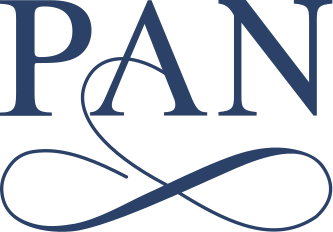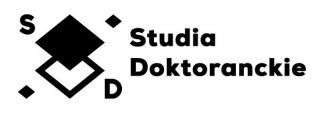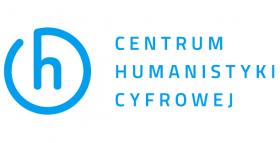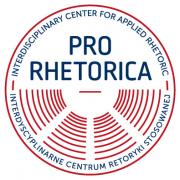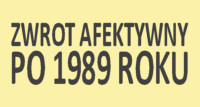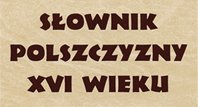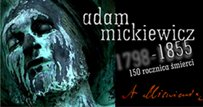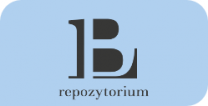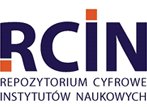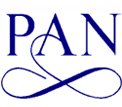
Agnieszka Mrozik
PhD, Associate Professor of Literary Studies
Centre for Cultural and Literary Studies of Communism
Research Group “Women’s Archive”
Research Group “Literature and Contexts”
E-mail:
ORCID: 0000-0002-8438-9652
Contact:
Research Interests:
-
Women, gender and generations in state-socialist and post-socialist Central and Eastern Europe.
-
Communist women in interwar and post-World War II Poland: biography, memory, cultural and women’s activism.
-
Cultural relations between Poland and the Global South after World War II through the lens of gender.
-
Remembering post-socialist transitions in Central and Eastern Europe: literary, visual and autobiographical perspectives.
Selected Publications:
Monographs:
-
Architektki PRL-u. Komunistki, literatura i emancypacja kobiet w powojennej Polsce [Female architects of the Polish People’s Republic. Communist women, literature, and women’s emancipation in postwar Poland] (Warszawa: Wydawnictwo IBL PAN, 2022), 532 pp.
-
Akuszerki transformacji. Kobiety, literatura i władza w Polsce po 1989 roku [Midwives of the transformation. Women, literature, and power in post-1989 Poland] (Warszawa: Wydawnictwo IBL PAN, 2012), 438 pp.
Edited Volumes:
-
Reassessing Communism: Concepts, Culture, and Society in Poland, 1944–1989, eds. and introduction Katarzyna Chmielewska, Agnieszka Mrozik and Grzegorz Wołowiec (Budapest and New York: CEU Press, 2021), 440 pp.
-
Gender, Generations, and Communism in Central and Eastern Europe and Beyond, eds. and introduction Anna Artwińska and Agnieszka Mrozik (New York and London: Routledge, 2020), 312 pp.
-
Historical Memory of Central and East European Communism, eds. and introduction Agnieszka Mrozik and Stanislav Holubec (New York: Routledge, 2018), 286 pp.
-
Komunizm—idee i praktyki w Polsce 1944–1989 [Communism: Ideas and practices in Poland, 1944–1989], eds. and introduction Katarzyna Chmielewska, Agnieszka Mrozik and Grzegorz Wołowiec (Warszawa: Wydawnictwo IBL PAN, 2018), 516 pp.
-
… czterdzieści i cztery. Figury literackie. Nowy kanon […forty and four. Literary figures. The new canon], eds. Monika Rudaś-Grodzka, Katarzyna Nadana-Sokołowska, Agnieszka Mrozik et al. (Warszawa: Wydawnictwo IBL PAN, 2016), 696 pp.
-
Encyklopedia gender [Encyclopedia of gender], eds. Monika Rudaś-Grodzka, Katarzyna Nadana-Sokołowska, Agnieszka Mrozik et al. (Warszawa: Czarna Owca, 2014), 639 pp.
-
PRL—życie po życiu [People’s Republic of Poland—the afterlife], eds. Katarzyna Chmielewska, Agnieszka Mrozik and Grzegorz Wołowiec (Warszawa: Wydawnictwo IBL PAN, 2013), 223 pp.
Edited Journal Contribution (guest editor):
-
Kultura i Społeczeństwo 2 (2022): "Powojenne historie ludowe" [People’s histories of postwar Poland] (co-edited with Magda Szcześniak).
-
European Journal of Life Writing 10 (2021): "Remembering Late Socialism" (co-edited with Anja Tippner).
-
Teksty Drugie 1 (2016): "Powrót pokolenia?" [The return of a generation?] (co-edited with Anna Artwińska).
Peer-Reviewed Journal Articles and Book Chapters:
-
“Bringing the Global South In: Polish Female Journalists, Writers and Magazine Editors and Their National and International Efforts to Foster Solidarity with Asian Women During the Global Sixties,” The Global Sixties: An Interdisciplinary Journal, Special Issue: “East-South Interaction in the Global Sixties through the Lens of Gender” (under review).
-
“Komunistki: Polish Communist Women,” in Anti-Atlas: Critical Area Studies from the East of the West, eds. Tim Beasley-Murray, Wendy Bracewell and Michał Murawski (UCL Press, forthcoming in 2025).
-
“Locally and Globally: Polish Communist Women Activists and Post-War Transnational Emancipation Efforts, and How to Write About Them Today,” in Transnational Feminism in Non-English Speaking Europe, c.1960–1990, eds. Agnes Andeweg and Heidi Kurvinen (Cham: Palgrave Macmillan, 2024), 177-201.
-
“Authority, Authenticity, and the Epistemic Legacies of Cold War Area Studies: Some Reflections on Women’s History and State Socialism in Eastern Europe,” Aspasia: The International Yearbook of Central, Eastern, and Southeastern European Women’s and Gender History 17 (2023): 31-52 (co-authored with Kristen Ghodsee).
-
“‘Historia jakby nas pominęła.’ O powojennych pamiętnikach konkursowych we współczesnych projektach pisania ludowej historii Polski” [“History seems to have left us out.” On post-war competition diaries and contemporary projects for writing a people’s history of Poland], Kultura i Społeczeństwo 2 (2022): 39-69.
-
“Gender Studies in Polen. Ein unvollendetes Projekt” [Gender studies in Poland. An unfinished project], in Gender Studies im Dialog. Transnationale und transdisziplinäre Perspektiven [Gender studies in dialogue. Transnational and transdisciplinary perspectives], eds. Anna Artwińska and Janine Schulze-Fellmann (Bielefeld: transcript Verlag, 2022), 83-98.
-
“Growing Up as a Girl in Late Socialist Poland: The Personal, the Political and Class in Feminist Quasi-Autobiographical Novels by Izabela Filipiak and Joanna Bator,” European Journal of Life Writing 10 (2021): 15-40.
-
“Remembering Late Socialism in Autobiographical Novels and Autofictions from Central and Eastern Europe: Introduction,” European Journal of Life Writing 10 (2021): 1-14 (co-authored with Anja Tippner)
-
“‘’Cause a Girl Is People’: Projects and Policies of Women’s Emancipation in Postwar Poland,” in Reassessing Communism: Concepts, Culture, and Society in Poland, 1944–1989, eds. Katarzyna Chmielewska, Agnieszka Mrozik and Grzegorz Wołowiec (Budapest and New York: CEU Press, 2021), 141-175.
-
“Communism Studies in Central and Eastern Europe: A New Approach” (co-authored with Katarzyna Chmielewska and Grzegorz Wołowiec), in Reassessing Communism: Concepts, Culture, and Society in Poland, 1944–1989, eds. Katarzyna Chmielewska, Agnieszka Mrozik and Grzegorz Wołowiec (Budapest and New York: CEU Press, 2021), 1-14.
-
“Girls from the Polish Youth Union: (Dis)remembrance of the Generation,” in Gender, Generations, and Communism in Central and Eastern Europe and Beyond, eds. Anna Artwińska and Agnieszka Mrozik (New York and London: Routledge, 2020), 197-226.
-
“Generational and Gendered Memory of Communism in Central and Eastern Europe: Methodological Perspectives and Political Challenges” (co-authored with Anna Artwińska), in Gender, Generations, and Communism in Central and Eastern Europe and Beyond, eds. Anna Artwińska and Agnieszka Mrozik (New York and London: Routledge, 2020), 9-28.
-
“Zofia Dembińska—zapomniana ‘architektka PRL-u.’ Krytyczny przyczynek do feministycznej teorii i praktyki biograficznej w Polsce” [Zofia Dembińska—the forgotten “female architect of communist Poland.” A critical contribution to feminist biographical theory and practice in Poland], Teksty Drugie 3 (2019): 252-269.
-
“Anti-Communism: It’s High Time to Diagnose and Counteract,” Praktyka Teoretyczna 1 (2019): 178-184.
-
“Introduction: Historical Memory of European Communisms Before and After 1989” (co-authored with Stanislav Holubec), in Historical Memory of Central and East European Communism, eds. Agnieszka Mrozik and Stanislav Holubec (New York: Routledge, 2018), 1-18.
-
“‘We Must Reconstruct Our Own Past’: 1960s Polish Communist Women’s Memoirs—Constructing the (Gender) History of the Polish Left,” in Historical Memory of Central and East European Communism, eds. Agnieszka Mrozik and Stanislav Holubec (New York: Routledge, 2018), 192-220.
-
“Communism as a Generational Herstory: Reading Post-Stalinist Memoirs of Polish Communist Women,” History of Communism in Europe 8 (2017): The Other Half of Communism: Women’s Outlook: 261-284.
-
“Beasts, Demons, and Cold Bitches: Memories of Communist Women in Contemporary Poland,” Baltic Worlds 4 (2017): 54-57.
-
“Crossing Boundaries: The Case of Wanda Wasilewska and Polish Communism,” Aspasia. The International Yearbook of Central, Eastern, and Southeastern European Women's and Gender History 11 (2017): 19-53.
-
“Communist Women and the Spirit of Transgression: The Case of Wanda Wasilewska,” Second Texts 1 (2016): 116-143.
-
“‘Dziadek (nie) był komunistą.’ Między/transgeneracyjna pamięć o komunizmie w polskich (auto)biografiach rodzinnych po 1989 roku” [“Grandpa was (not) a communist.” Inter/transgenerational memory about communism in post-1989 Polish family (auto)biographies], Teksty Drugie 1 (2016): 46-67.
-
“Pożytki z ‘pokolenia.’ Dyskusja o ‘pokoleniu’ jako kategorii analitycznej” [The usefulness of “generations.” Discussing the “generation” as an analytical category], Teksty Drugie 1 (2016): 347-366 (co-authored with Anna Artwińska, Małgorzata Fidelis and Anna Zawadzka).
-
“Nieobecne, ale użyteczne. O pożytkach z komunistek w polskim dyskursie publicznym po 1989 roku” [Absent but useful. Making use of communist women in post-1989 Polish public discourse], in Sporne postacie polskiej krytyki feministycznej po 1989 roku [Disputed figures of Polish feminist criticism after 1989], ed. Monika Świerkosz (Gdańsk: Wydawnictwo Naukowe Katedra, 2016), 171-208.
-
“Zwrot genderowy w Polsce: niedokończony projekt” [Gender turn in Poland: The unfinished project], in Projekt na daleką metę. Prace ofiarowane Ryszardowi Nyczowi [A long-term project. Works dedicated to Ryszard Nycz], eds. Zdzisław Łapiński and Anna Nasiłowska (Warszawa: Wydawnictwo IBL PAN, 2016), 145-152.
-
“‘Traktorzystka to nie kobieta.’ Polska polityka płci w okresie Odwilży” [“Female tractor drivers are not women.” The politics of gender during the Polish thaw], in Przełom Października ‘56 [The breakthrough of October ‘56], ed. Paweł Dybicz (Warszawa: Fundacja Oratio Recta, 2016), 133-162.
-
“Prządki (po)rewolucyjnej rzeczywistości. Konstruowanie historii lewicy we wspomnieniach polskich komunistek w latach 60. XX wieku” [Spinners of the (post-) revolutionary reality. Constructing history of the left in the memoirs of Polish communist women in the 1960s], in Rok 1966. PRL na zakręcie [1966. The Polish People’s Republic at a turning point], eds. Katarzyna Chmielewska, Grzegorz Wołowiec and Tomasz Żukowski (Warszawa: Wydawnictwo IBL PAN, 2014), 255-296.
-
“Poza nawiasem historii (kobiet), czyli po co nam dziś komunistki” [On the margins of (women’s) history, or why we need communist women today], Wakat On-line 3 (2014).
-
“‘Komuniści (nie) mają ojczyzny...’ Wanda Wasilewska jako polska (anty)bohaterka narodowa” [“Communists have no homeland…” A portrait of Wanda Wasilewska], Studia Litteraria et Historica 2 (2013): 528-554.
-
“‘Wanda, co wolała Rusa.’ Wytwarzanie (biografii) komunistki—wytwarzanie (tożsamości) narodu” [“Wanda who preferred the Russian.” The manufacturing of a communist woman—the manufacturing of a nation], in PRL—życie po życiu [People’s Republic of Poland—the afterlife], eds. Katarzyna Chmielewska, Agnieszka Mrozik and Grzegorz Wołowiec (Warszawa: Wydawnictwo IBL PAN, 2013), 47-89.
-
“Women’s Archives as Literary Larders: Identity Politics in Women’s (Auto)biographies,” in Polish Literature in Transformation, eds. Ursula Phillips, Knut Andreas Grimstad and Kris Van Heuckelom (Berlin: LIT Verlag, 2013), 139-154.
-
“ЖЕНСКИЕ АРХИВЫ—КЛАДОВЫЕ ПАМЯТИ. ПОЛИТИКА ИДЕНТИЧНОСТИ В (АВТО)БИОГРАФИЯХ ЖЕНЩИН ПОСЛЕ 1989 ГОДА” [Women’s archives as literary larders. Identity politics in women’s (auto)biographies after 1989], in Гендер и литература в странах Центральной и Юго-Восточной Европы [Gender and literature in Central and South-Eastern Europe], eds. И. Е. Адельгейм, Н. Н. Старикова and А. В. Усачева (МОСКВА: Институт славяноведения РАН, 2013), 39-55.
-
“Bridget Jones au bord de la Vistule. (Re)constructions de la féminité dans la littérature populaire polonaise après 1989” [Bridget Jones up from the Vistula river. (Re)constructions of femininity in Polish women’s popular fiction after 1989], in Un siècle après Marie Curie-Sklodowska ou l'émancipation des femmes en Pologne et en France [A century after Maria Curie-Skłodowska. Emancipation of women in Poland and France], eds. Monika Rudaś-Grodzka, Katarzyna Nadana-Sokołowska and Ewa Serafin (Warszawa: Wydawnictwo IBL PAN, 2012), 171-193.
-
“‘The Time of Visionary Artists Has Come to an End’? Manuela Gretkowska’s Recent Literary and Political Activity,” in Women’s Voices and Feminism in Polish Cultural Memory, eds. Urszula Chowaniec and Ursula Phillips (Newcastle upon Tyne: Cambridge Scholar Publishing, 2012), 109-123.
-
“Akuszerki transformacji. Stosunek do PRL-u jako element polityki tożsamości polskiego feminizmu po 1989 roku” [Midwives of the transformation. The Polish People’s Republic as part of feminist identity politics in post-1989 Poland], in Opowiedzieć PRL [To tell of the People’s Poland], eds. Katarzyna Chmielewska and Grzegorz Wołowiec (Warszawa: Wydawnictwo IBL PAN, 2011), 145-158.
-
“Czas superwomen. Młode kobiety w nauce” [The time of superwomen. Young female scientists], Tekstualia 4 (2010):13-24.
-
“Gender Studies in Poland: Prospects, Limitations, Challenges,” Dialogue and Universalism 5-6 (2010): 19-29.
-
“Motherhood as a Source of Suffering: On the Contemporary Polish Discourse of Maternity,” in Mapping Experience in Polish and Russian Women’s Writing, eds. Urszula Chowaniec, Marja Rytkonen, Ursula Phillips and Kirsi Kurkijärvi (Newcastle upon Tyne: Cambridge Scholars Publishing, 2010), 214-239.
-
“‘БОМБАРДИРОВАЧКИ’? СБОГУВАНЕ С МАЙКА ПОЛЯКИНЯ В ЖЕНСКАТА ПРОЗА СЛЕД 1989 ГОДИНА” [“Female bombers”? Farewell to the Polish Mother in post-1989 women’s prose], in Даопишешжена... Българо-полски дискусии в годините на прехода [To write a woman… Bulgarian-Polish conversations in the transition period], eds. Магда Карабелова и Анна Нашиловска (София: Издателство “Боян Пенев,” 2009), 95-123.
-
“‘Still Seeking for Something’: The Unspeakable (Loss) in Passing by Nella Larsen,” Wagadu: A Journal of Transnational Women’s and Gender Studies 6 (2008).
-
“Być liderem na placu zabaw. ‘Kryzys męskości’ jako backlash w literaturze polskiej po 1989 roku” [To be a leader on the playground. “Masculinity crisis” as a figure of backlash in post-1989 Polish literature], in Lektury płci. Polskie (kon)teksty [Gender readings. Polish (con)texts], ed. Mieczysław Dąbrowski (Warszawa: Elipsa, 2008), 100-117.
Book Reviews:
-
“‘An Unexpectedly Transgressive Subject of Twentieth-Century History’: How to Write (and Why to Read) about Communist Women Today,” Acta Poloniae Historica 128 (2023): 293-306 [Kristen Ghodsee, Red Valkyries: Feminist Lessons from Five Revolutionary Women, Verso, 2022; Francisca de Haan, ed., The Palgrave Handbook of Communist Women Activists around the World, Palgrave Macmillan, 2023].
-
“Second World, Second Sex,” H-Soz-Kult, 5.06.2020 [Kristen Ghodsee, Second World, Second Sex: Socialist Women’s Activism and Global Solidarity during the Cold War, Duke University Press, 2019].
-
“Finding Women in the State,” Aspasia 13 (2019): 236-240 [Wang Zheng, Finding Women in the State: A Socialist Feminist Revolution in the People’s Republic of China, 1949–1964, University of California Press, 2016].
-
“Marksizm w badaniach literackich. Wersja 2.0” [Marxism in literary studies. Version 2.0], Pamiętnik Literacki 2 (2019): 210-219 [Paweł Tomczok et al. (eds.), Ekonomia Literatury series, Wydawnictwo Uniwersytetu Śląskiego, 2017].
-
“Sexual Revolution Did Not Start in the West,” H-Soz-Kult, 18.01.2019 [Kateřina Lišková, Sexual Liberation, Socialist Style: Communist Czechoslovakia and the Science of Desire, 1945–1989, Cambridge University Press, 2018].
-
“Antysemityzm nasz powszedni” [Our everyday antisemitism], Bez Dogmatu 115 (2018): 16-18 [Anna K. Kłys, Tajemnica pana Cukra. Polsko-żydowska wojna przed wojną, Wielka Litera, 2015].
-
“Melancholia lewicy” [Melancholy of the left], Bez Dogmatu 113 (2017): 28-29 [Enzo Traverso, Left-wing Melancholia: Marxism, History, and Memory, Columbia University Press, 2016].
-
“Czy komunistka może być ofiarą?” [Can a female communist be a victim?], Bez Dogmatu 112 (2017): 29-31 [Stanisława Sowińska, Gorzkie lata. Z wyżyn władzy do stalinowskiego więzienia, Ośrodek KARTA, 2017].
-
“O pokoleniach z perspektywy niemieckiej” [Generations from a German perspective], Teksty Drugie 1 (2016): 253-263 (co-authored with Anna Artwińska) [Hubert Orłowski (ed.), Pokolenia albo porządkowanie historii, Wydawnictwo Nauka i Innowacje, 2015].
-
“Historia na ławie oskarżonych” [History in the dock], Bez Dogmatu 107 (2016): 7-10 [Piotr Lipiński, Bicia nie trzeba było ich uczyć. Proces Humera i oficerów śledczych Urzędu Bezpieczeństwa, Wydawnictwo Czarne, 2016].
-
“Kobiety w mediach: nie wystarczy dodać i zamieszać” [Women in the media: It is not enough to add and stir up], Zadra 1-2 (2015): 88-90 [Piotr Szumlewicz, Wielkie pranie mózgów. Rzecz o polskich mediach, Czarna Owca, 2015].
-
“Obywatelki-żołnierki” [Women citizens—women soldiers], Bez Dogmatu 101-102 (2014): 26-30 [Anna Krylova, Soviet Women in Combat. A History of Violence on the Eastern Front, Cambridge University Press, 2011].
-
“Legendą być” [To be a legend], Bez Dogmatu 100 (2014): 4-10 [Karol Modzelewski, Zajeździmy kobyłę historii. Wyznania poobijanego jeźdźca, Iskry, 2013].
-
“Wywołać z milczenia. Historia kobiet w PRL-u—kobiety w historii PRL-u” [Calling out of silence. The history of women in the Polish People’s Republic—women in the history of the Polish People’s Republic], Teksty Drugie 4 (2011): 112-119 [Małgorzata Fidelis, Women, Communism, and Industrialization in Postwar Poland, Cambridge University Press, 2010].
-
“Solistki—jednym głosem” [Women soloists—in one voice], Res Publica Nowa 8 (2009/2010): 182-186 [Maria Cyranowicz, Joanna Mueller and Justyna Radczyńska (eds), Solistki. Antologia poezji kobiet (1989–2009), Staromiejski Dom Kultury, 2009].
Articles in Dictionaries and Encyclopedias:
-
“Helena Ceysingerówna,” in Słownik polskiej krytyki literackiej 1764–1918 (hasła osobowe) [Dictionary of Polish literary criticism, 1764–1918 (biographical entries)], vol. 1, eds. Teresa Kostkiewiczowa, Grażyna Borkowska and Magdalena Rudkowska (Toruń: Wydawnictwo Naukowe UMK and Towarzystwo Literackie im. Adama Mickiewicza, 2024), 2016-221.
-
“Hela traktorzystka” [Hela the tractor driver] and “Siłaczka” [Strongwoman], in … czterdzieści i cztery. Figury literackie. Nowy kanon […forty and four. Literary figures. The new canon], eds. Monika Rudaś-Grodzka, Katarzyna Nadana-Sokołowska, Agnieszka Mrozik et al. (Warszawa: Wydawnictwo IBL PAN, 2016), 210-227, 546-566.
-
“Saga,” “Siostrzeństwo,” “Utopia,” “Własny głos” [Saga, Sisterhood, Utopia, Own Voice], in Encyklopedia gender [Encyclopedia of gender], eds. Monika Rudaś-Grodzka, Katarzyna Nadana-Sokołowska, Agnieszka Mrozik et al. (Warszawa: Czarna Owca, 2014), 498-501, 511-514, 555-559, 570-573.
-
“Krystyna Kofta” (co-author Agnieszka Gajewska), in Poznański przewodnik literacki [Posen literary guide], eds. Paweł Cieliczko and Joanna Roszak (Poznań: Media Rodzina, 2013), 152-153.
-
“Krystyna Kofta,” in Wielkopolski Alfabet Pisarek [The alphabet of women writers from Greater Poland], eds. Ewa Kraskowska and Lucyna Marzec (Poznań: Wydawnictwo Wojewódzkiej Biblioteki Publicznej i Centrum Animacji Kultury, 2012), 145-151.
-
“Małgorzata Musierowicz,” in Wielkopolski Alfabet Pisarek [The alphabet of women writers from Greater Poland], eds. Ewa Kraskowska and Lucyna Marzec (Poznań: Wydawnictwo Wojewódzkiej Biblioteki Publicznej i Centrum Animacji Kultury, 2012), 229-234.
-
“Matka odchodzi” [Mother passes away], in Panorama Literatury Polskiej [Panorama of Polish literature] (Warszawa: IBL PAN, 2009).
-
“Moja córeczka” [My little daughter], in Panorama Literatury Polskiej [Panorama of Polish literature] (Warszawa: IBL PAN, 2009).
Translations (into Polish):
- Audre Lorde, The Master’s Tools Will Never Dismantle the Master’s House, “LiteRacje” 1 (2007): 71-72.
In preparation:
- Women’s Forgotten Revolution: Communism and the Struggle for Emancipation in Postwar Poland (under contract with the Central European University Press; in preparation).
- “Bringing the Global South In: Polish Female Journalists, Writers and Magazine Editors and Their National and International Efforts to Foster Solidarity with Asian Women During the Global Sixties,” The Global Sixties: An Interdisciplinary Journal, Special Issue: “East-South Interaction in the Global Sixties through the Lens of Gender” (under review)
- Memory Studies 3 (2026): "Dialogic Remembering: Practices, Politics, and Potentialities" (co-edited with Ksenia Robbe and Andrei Zavadski; in preparation).
Participation in Academic and Organizational Events:
Research Projects and Networks:
-
2021–2024 Reconstituting Publics through Remembering Transitions: Facilitating Critical Engagement with the 1980-90s on Local and Transnational Scales, member of the research team implementing the project under Constructive Advanced Thinking program launched by the Network of European Institutes for Advanced Study (NetIAS): https://ias.ceu.edu/reconstituting-publics-through-remembering-transitions.
-
2017–2022 New Exploratory Phase in Research on East European Cultures of Dissent, researcher in COST Action CA16213, member of the working group “Culture in the Grey Zone”: https://nep4dissent.eu/profiles/7466310,agnieszka-mrozik/.
-
2017–2019 Marxist Literature in Poland and Czechoslovakia and Its Contexts, 1944–1956, researcher in an international research project awarded jointly by the Polish Academy of Sciences and the Czech Academy of Sciences.
-
2014–2017 Polish and Ukrainian Women’s Prose of the Interwar Period: A Central-European Perspective, researcher in an international research project awarded by the National Science Centre in Poland.
-
2013–2020 Communism – History of the Concept in Poland, 1944–1989. Interpretations and Uses: Literature, Culture, Society, researcher in a research project awarded by the National Program for the Development of the Humanities in Poland.
-
2013–2018 The Archives of Women, researcher in a research project awarded by the National Program for the Development of the Humanities in Poland.
-
2011–2013 Gender and Nation: The Culture of Social Change in Poland after 1989, PI in a 2-year research grant awarded by the National Science Centre in Poland.
-
2011–2013 Encyclopedia of Gender: Figures, Motives, Symbols, researcher in a research project awarded by the National Science Centre in Poland.
-
2011–2013 Telling the Story of the People’s Republic of Poland, researcher in a research project awarded by the National Science Centre in Poland.
-
2010–2012 Encyclopedia of Gender, researcher in a research project awarded by the Ministry of Science and Higher Education/ National Science Centre in Poland.
-
2010–2012 The Senses in Polish Culture: Representations of the Human Senses in Language, Literature and Art from the Middle Ages to the Present, researcher in a research project awarded by the National Centre for Research and Development in Poland.
Teaching:
2024 Guest Professor in Gender Studies and Memory Studies, Faculty of Social and Cultural Sciences, European University Viadrina in Frankfurt (Oder)
-
Women’s rights and mobilizations in Poland (1945–2020): Concepts, debates, practices (seminar).
-
Remembering transition(s) across Central, Eastern and Southeastern Europe: Visual and literary representations, official and personal narratives (seminar).
2012–2023 Lecturer in Feminist Theory and History of Women’s Movements, Postgraduate Studies in Clinical Sexology, Medical University of Warsaw
-
History of women’s movements in Poland and the world (lecture).
-
Feminist approaches to prostitution/sex work (lecture).
2008–2016 Lecturer in Women’s and Gender Studies, Postgraduate Program in Gender Studies, Institute of Literary Research of the Polish Academy of Sciences (IBL PAN)
-
Women, communism and emancipation in postwar Poland (seminar, 2015/2016)
-
Shades of Polish backlash (seminar, 2013/2014)
-
Feminism and popular culture (seminar, 2011/2012; 2012/2013)
-
Critical analysis of media discourse in Poland (seminar, 2010/2011)
-
“Crisis of masculinity” as a figure of backlash in Polish culture after 1989 (seminar, 2008/2009)
-
Feminism and the media (seminar, 2007/2008)
2005–2010 Lecturer in Polish Literature, Faculty of Polish Studies, University of Warsaw
-
Is it possible to escape from the national monument? Farewells to the Polish Mother in Polish women’s prose after 1989 (seminar, 2009/2010)
-
History of 20th century Polish literature (class, 2007/2008)
-
Narrative, identity, feminism. On 20th-century women’s prose (seminar, 2006/2007)
-
“Women have a voice.” Figures of feminist discourse in Polish and foreign women’s prose (seminar, 2005/2006)
Professional Affiliations and Service:
- 2023 Book review editor at H-Poland: H-Net’s network for scholars who specialize in the history, culture, art, politics, economics, and society of Poland.
- 2023 Expert evaluator for the National Science Center in Poland (Narodowe Centrum Nauki, NCN).
- 2021 Member of the Polish Studies Association (PSA).
- 2021–2024 Member of the Advisory Board of the Polish Studies Association (PSA).
- 2020 Member of the Association for Slavic, East European, and Eurasian Studies (ASEEES).
- 2019 Member of the Memory Studies Association (MSA).
- 2019 Expert evaluator for the Polish National Agency for Academic Exchange (Narodowa Agencja Wymiany Akademickiej, NAWA), Bekker Program.
- 2018–2022 Head of the International Cooperation Development Program, Institute of Literary Research of the Polish Academy of Sciences (IBL PAN).
- 2017–2020 Member of the European Network in Universal and Global History.
- 2016 Member of the International Society for Cultural History.
- 2016 Expert evaluator for the European Commission’s Horizon 2020 and Horizon Europe programs.
- 2015–2024 Member of the Polish Society for Gender Studies.
- 2012–2022 Expert evaluator in the Jan Józef Lipski Competition for the best MA thesis, organized by the Open Republic: Association Against Anti-Semitism and Xenophobia.
- 2012–2020 Member of the Editorial Board of the publishing series “Lupa Obscura” in the Publishing House of the Institute of Literary Research (Wydawnictwo IBL PAN).
- 2012–2015 Expert evaluator in the Competition for the best MA thesis on gender issues, organized by the Postgraduate Program in Gender Studies at the Institute of Literary Research of the Polish Academy of Sciences (IBL PAN).
- 2010–2021 Member of the Editorial Team of the cultural and political quarterly Bez Dogmatu (Without Dogma).
- 2009–2019 Board member of the Gender Centre Foundation.
Awards, Fellowships, Guest Research Stays:
-
2025 From Cold Warriors to Organizers and Interpreters of the World: Polish Communist Women and the Gender History of the Cold War, 3-month Dianne Widzinski Senior Fellowship at the Copernicus Center for Polish Studies, University of Michigan, Ann Arbor. Zob. link.
-
2024 Guest professor at the Faculty of Social and Cultural Sciences, European University Viadrina in Frankfurt (Oder) (one semester): https://www.europa-uni.de/de/studium/studienangebot/ma-european-studies/team/06a-gastprofs-gastdozierende-2024/mrozik/index.html.
-
2019 Women’s Life Writing as Activism: Forging Collective Identities in the Auto/Biographical Works of Polish and Czechoslovak Female Communists and Dissidents, 3-month DAAD research fellowship at the Institute of Slavic Studies, University of Hamburg.
-
2018–2019 Female Architects of the People’s Poland: Agency, Collective Auto/Biography and Memory, 5-month Junior Thyssen Fellowship at the Institute for Advanced Study, Central European University in Budapest: https://ias.ceu.edu/people/agnieszka-mrozik.
-
2017 Forgotten Revolution: Communist Female Intellectuals and the Making of Women’s Emancipation in Postwar Poland, 6-month research fellowship at the Imre Kertész Kolleg in Jena: https://www.imre-kertesz-kolleg.uni-jena.de/fellows/former-fellows/2017/dr-agnieszka-mrozik.
-
2016–2017 Communist Women and the Spirit of Transgression: A History of One Generation, 2-year research grant awarded in the framework of the International Cooperation Development Program at the Institute of Literary Research of the Polish Academy of Sciences (IBL PAN).
-
2016 Erasmus Plus visiting researcher at the Gender Studies Department, Central European University, Budapest (one week).
-
2014 Erasmus Plus visiting researcher at the Institute of Slavic Studies, University of Zurich (one week).
-
2013–2016 3-year scholarship for an outstanding young scientist awarded by the Ministry of Science and Higher Education in Poland.
-
2011–2012 “Wanda, Who Preferred the Russian”: Communist Women as a Subject of Gender Studies, 1-year research grant awarded under the Institute of Literary Research’s “Young IBL” program.
